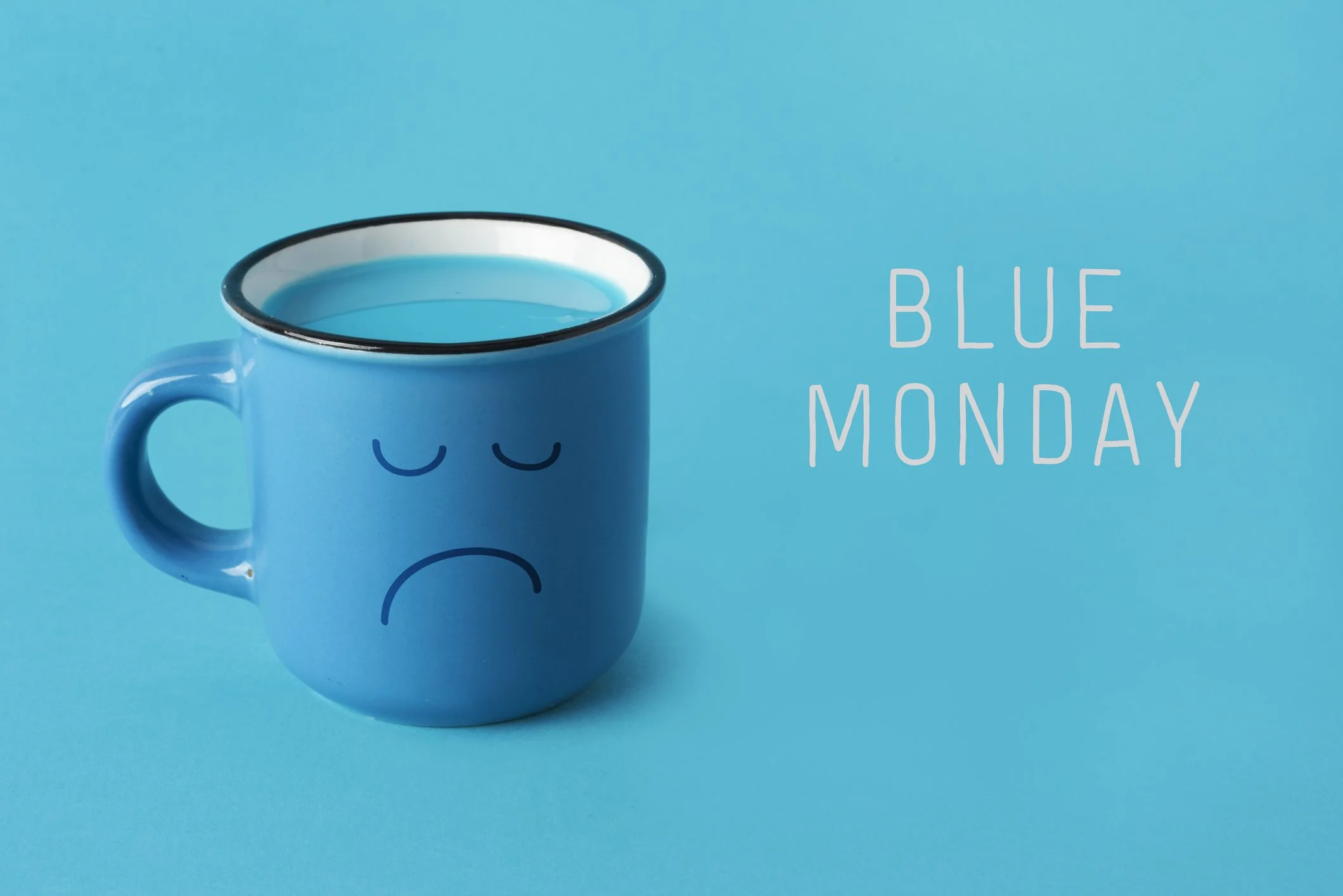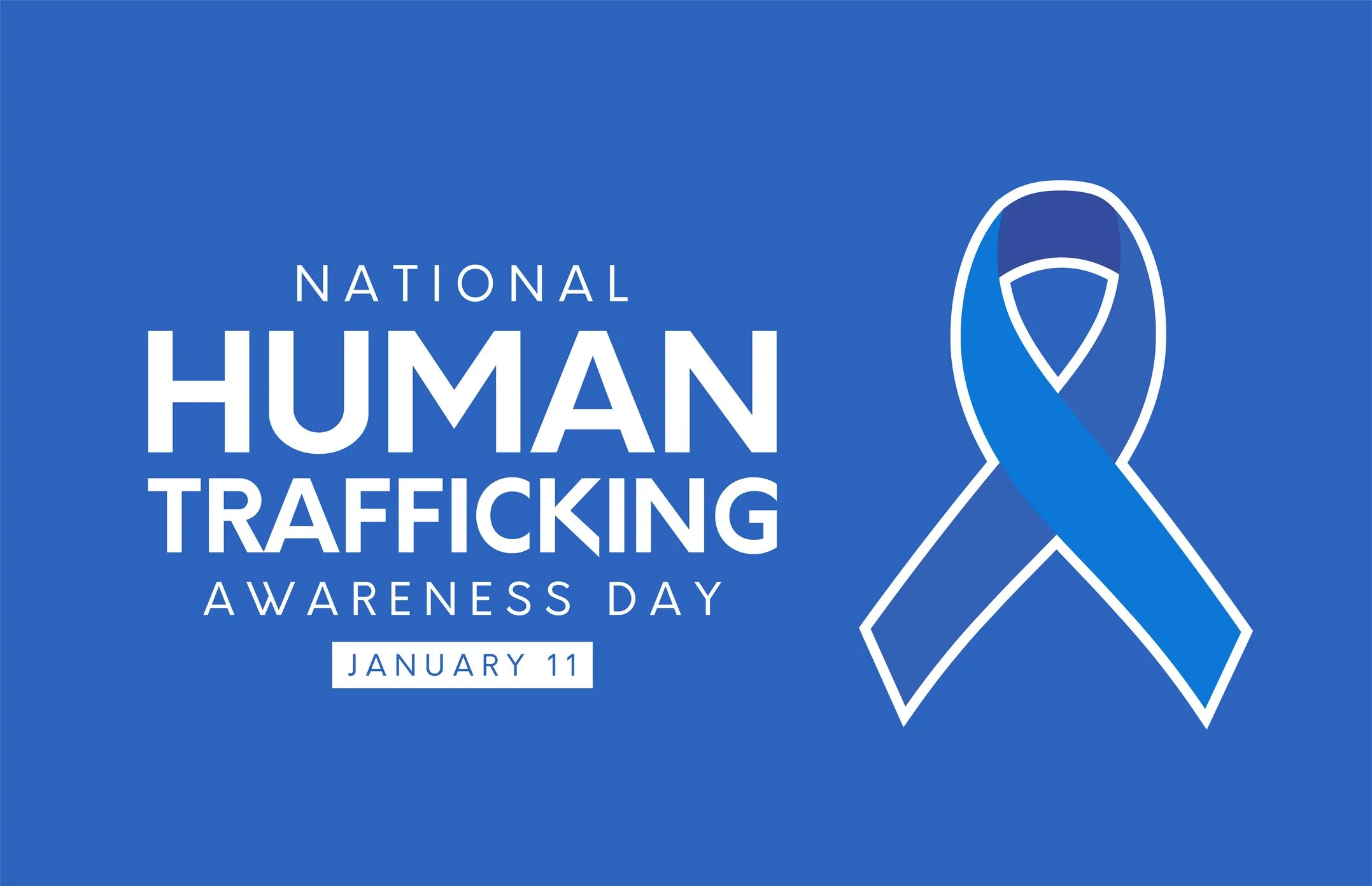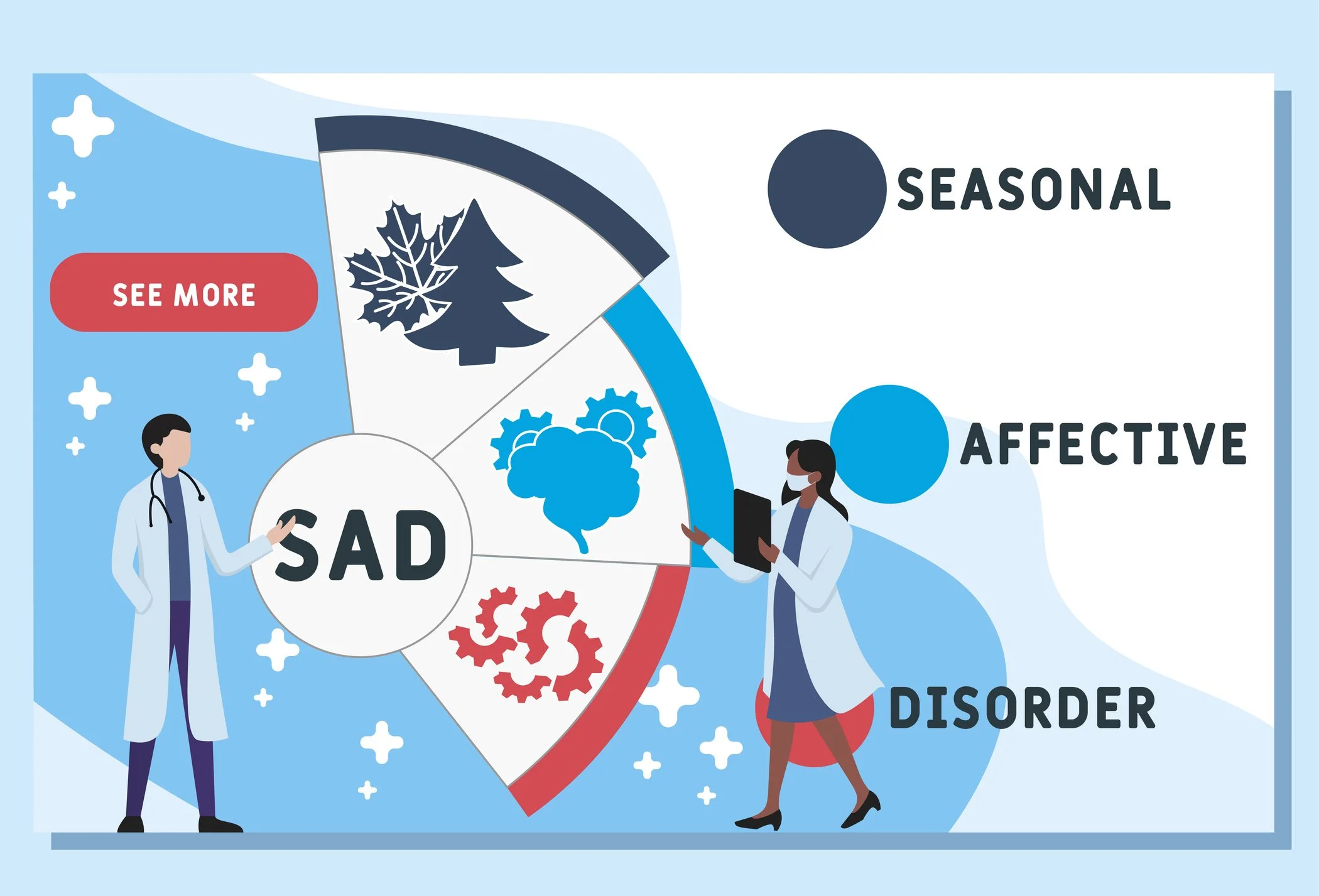
Alleviant Integrated Mental Health Blog
When Food and Mood Collide: Understanding Emotional Eating, Eating Disorders, and New Year Diet Culture
January often arrives with bright promises: resolutions to eat healthier, exercise more, or “start fresh” after the indulgences of the holidays. For many people, this focus on diet and self-discipline can be stressful, triggering, or even harmful, especially for those who struggle with emotional eating, disordered eating, or body-image concerns.
If you find that food has been a source of comfort, conflict, or anxiety, you are not alone. Understanding how mood and food interact, and approaching nutrition with self-compassion, can make a meaningful difference in your mental health and overall well-being.
Why Some Brains Need More Than Motivation: Understanding Treatment‑Resistant Depression
January is often filled with messages about motivation, fresh starts, and new beginnings. For many, setting goals and committing to change feels energizing. But for some individuals, particularly those struggling with treatment-resistant depression, willpower and positive thinking alone aren’t enough.
This condition can make the New Year feel heavier than it looks from the outside. Understanding what treatment-resistant depression is, why traditional approaches sometimes fall short, and the options available today can provide clarity, hope, and a path forward.
When Willpower Isn’t Enough: Understanding the Mental Health Side of Lifestyle Changes
Every January, many of us set intentions to improve our physical health. We resolve to exercise more, eat healthier, lose weight, or quit substances. But even the most well-intentioned plans can feel emotionally exhausting, and progress often stalls. That doesn’t mean you lack discipline. More often, it means that the emotional and mental aspects of change are being overlooked.
How to Support a Loved One Who Is Struggling Right Now
January can be a difficult month for many people. The holidays are over, winter is in full swing, and the start of a new year can bring pressure, exhaustion, or feelings of isolation. For some, these factors can trigger or worsen depression symptoms, leaving them quietly struggling. If someone you care about seems “off,” you may be unsure how to help. Knowing what to look for and how to respond can make a meaningful difference.
Why Blue Monday Is Not the End of Hope and How to Lift Your Mood
Every January, the third Monday of the month is often labeled as “Blue Monday.” It has a reputation for being the saddest day of the year, mostly because of winter weather, post holiday fatigue, financial stress, and the slow return to routine. While the idea itself is more myth than science, the feelings behind it are very real. Many people notice their mood dipping in mid January, and that experience deserves care, not dismissal.
If this day feels heavy for you, it does not mean you are failing or that the rest of the season will be hard. It simply means your mind and body are responding to stress, darkness, or a shift in routine. There are gentle ways to support yourself and small steps that can make this time feel lighter.
What Your Nervous System Needs This Winter: A Guide to Regulation
Winter can feel heavier than other seasons. Shorter days, colder temperatures, and the residual stress of the holidays can leave your mind and body feeling off balance. What many people don’t realize is that these feelings are often rooted in your nervous system. How your body responds to stress, cold, and social pressures directly affects your mood, energy, and overall mental health. Understanding and supporting your nervous system can make winter feel less overwhelming and more manageable.
The Mental Health Impact of Overworking: Why So Many People Crash in January
January is often presented as a fresh start, but for many people it feels more like a crash landing. After months of pushing through Q4 deadlines, holiday gatherings, financial stress, travel, and increased responsibilities, the body finally stops, and the exhaustion that was building for weeks shows up all at once.
This experience is more common than people realize. Burnout tends to hit when life finally slows down, not when you are pushing through the chaos. If January feels heavier than you expected, you are not alone, and you are not doing anything wrong. Your body is responding to months of running at full capacity.
Mindful Goal Setting: How to Release Perfectionism and Find Peace in Progress
The start of a new year often brings a sense of pressure. Many people feel the need to set big goals, reinvent themselves, or finally achieve the level of perfection they imagine. The truth is that perfectionism rarely helps anyone grow. It usually creates stress, fear of failure, and unrealistic expectations that leave people feeling discouraged before they even begin.
Mindful goal setting offers something different. It encourages you to slow down, choose what truly matters, and move at a pace that supports your emotional well being. When you approach your goals with presence and compassion, you create space for real and lasting change.
Human Trafficking Awareness Day: Understanding Trauma and the Path to Recovery
January 11 is Human Trafficking Awareness Day. It is a day to honor survivors, educate our communities, and shine a light on an issue that often stays hidden. Human trafficking is not only a violation of safety and freedom. It also leaves deep emotional, psychological, and physical scars that can shape how a person sees the world and themselves long after the event ends.
At Alleviant, we believe healing is possible. The journey is not simple or fast, but with compassionate support, survivors can rebuild a sense of safety, identity, and hope. Understanding how trauma affects the brain and body is an important part of that process.
Understanding Seasonal Affective Disorder and How to Cope This Winter
Many people notice their mood changing as winter settles in. Shorter days, colder weather, and long stretches of darkness can take a real toll on emotional well being. For some, these changes lead to Seasonal Affective Disorder. SAD is a type of depression that follows a seasonal pattern, most often appearing in late fall and winter.
If you have been feeling heavier, more tired, or less motivated than usual, you are not alone. SAD is common, and there are proven ways to support your mental health through the darker months. Understanding what is happening inside your body and learning evidence based coping strategies can make this season feel more manageable and less overwhelming.
Beating the Post Holiday Blues: Why You Might Feel Down and How to Recover
The holiday season often brings a mix of joy, connection, and busyness. Once it all ends, many people notice an unexpected shift. The quiet days of January can feel heavier, slower, or strangely empty. If you find yourself feeling low after the holidays, you are not alone. This experience is very common and completely valid.
The post holiday blues are not a sign that something is wrong with you. They are your mind and body reacting to a major change in pace, structure, and emotional energy. With patience and simple routines, you can regain stability and feel more like yourself again.
Start the New Year Centered: Simple Intentions for a Mentally Healthy 2026
January is Mental Wellness Month, and it arrives at the perfect time. The start of a new year often feels full of pressure. Many people feel the need to overhaul their entire life at once, but real healing rarely comes from intense resolutions. It grows from small choices, gentle consistency, and the willingness to check in with yourself.
This month is an opportunity to slow down, breathe, and set intentions that support a stronger foundation for your mental health. Whether you are beginning therapy, returning to a routine, or exploring new ways to care for yourself, you deserve habits that help you feel grounded and supported.
Setting Mental Health Goals for the New Year: Realistic and Compassionate
The start of a new year often brings the idea of resolutions. Many people feel pressure to completely transform themselves, but mental health is not about perfection or drastic change. It is about small, meaningful steps that build resilience, balance, and well-being over time.
Setting mental health goals in a realistic and compassionate way can help you enter the new year feeling empowered, hopeful, and supported. Goals that honor your needs, energy, and circumstances are more likely to stick and provide lasting benefits.
Reflecting on Your Mental Health Journey: Celebrating Progress and Growth
As the days grow shorter and the winter months settle in, many people notice a shift in mood, energy, and motivation. Less sunlight, colder temperatures, and longer nights can make it harder to maintain routines and prioritize well-being.
This is a natural response, and it is especially important to practice self-care during the winter months. Thoughtful rituals can support your mental health, boost energy, and help you feel grounded even when the season feels long or challenging.
Self-Care Rituals to Help You Thrive During Shorter Days
As the days grow shorter and the winter months settle in, many people notice a shift in mood, energy, and motivation. Less sunlight, colder temperatures, and longer nights can make it harder to maintain routines and prioritize well-being.
This is a natural response, and it is especially important to practice self-care during the winter months. Thoughtful rituals can support your mental health, boost energy, and help you feel grounded even when the season feels long or challenging.
Staying Active in Winter: Movement Ideas for Mental and Physical Health
Winter can be a beautiful time of year, but shorter days, colder temperatures, and busy holiday schedules can make it tempting to stay inside and slow down. While cozy evenings by the fire are appealing, maintaining regular movement during the winter months is important for both mental and physical health. Physical activity helps reduce stress, improve mood, boost energy, and support overall well-being—even when the weather is chilly or daylight is limited.
The Importance of Sleep for Mental Health During the Holiday Season
The holiday season is a time of celebration, connection, and tradition. It is also a time when routines can shift, late nights become common, and stress levels rise. All of these factors can interfere with one of the most important pillars of mental health: sleep.
Prioritizing sleep during the holidays is not indulgent. It is essential for emotional balance, resilience, and overall well-being. Understanding why sleep matters and how to protect it can help you feel calmer, more present, and better equipped to enjoy the season.
Boosting Your Immune System Through Mental Health Care
As the holiday season approaches and the winter months settle in, many of us focus on protecting our physical health. We wash our hands more often, take vitamins, and bundle up against the cold. What is often overlooked, however, is how much mental health care can influence the strength of our immune system. Stress, worry, and emotional strain do more than weigh on the mind. They affect the body in ways that can make us more vulnerable to illness. Taking care of your mental health is not just about feeling better emotionally. It is also an important way to keep your body resilient.
How to Create New Traditions That Nourish Your Mental Health
The holiday season is often full of long-standing traditions. For some, these rituals bring joy, laughter, and a sense of belonging. For others, the same traditions can feel heavy, stressful, or out of step with how life looks now. Maybe the old ways feel too busy, too loud, or too emotionally charged. Maybe the holidays themselves feel overwhelming.
This year, consider creating new traditions that nurture your mental health. New traditions give you permission to honor your needs, connect with others in meaningful ways, and bring more calm and joy into the season. They do not have to be complicated or expensive. Even small, simple rituals can make a big difference in how you feel.
Holiday Parties and Social Anxiety: How to Show Up and Take Care of Yourself
The holidays often come with invitations, gatherings, and celebrations. For many, these moments are joyful. But for some, social events can trigger anxiety. The pressure to be cheerful, make small talk, or navigate crowded rooms can feel overwhelming.
If the idea of a holiday party makes your chest tighten or your thoughts race, you are not alone. Social anxiety is common, and there are ways to show up that honor both your boundaries and your well-being.




















